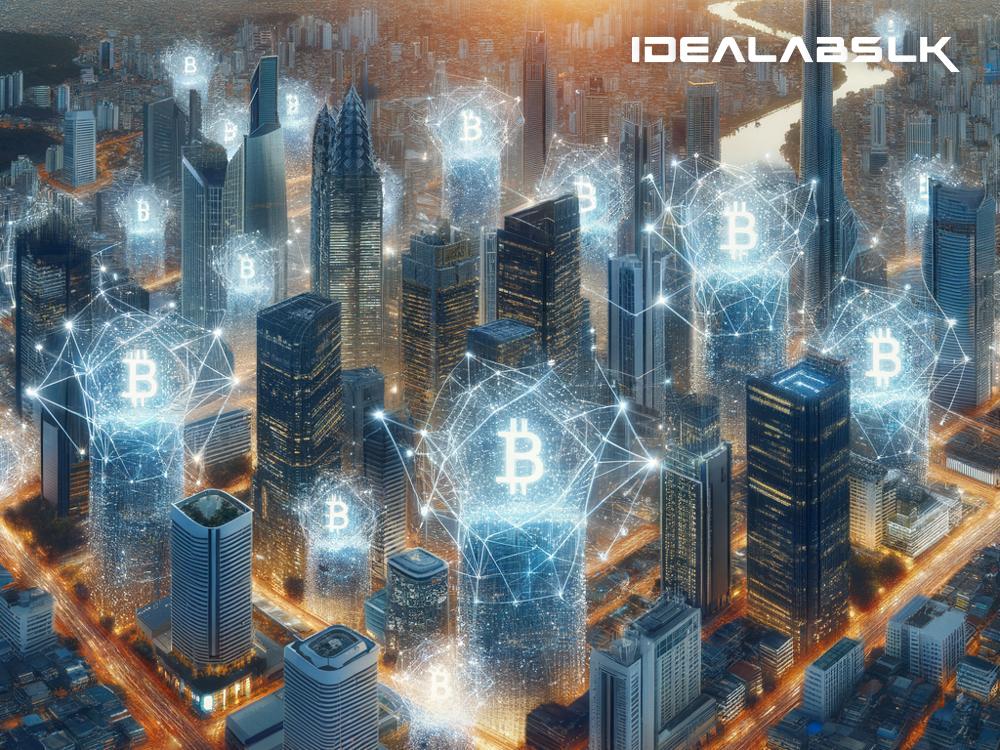Blockchain and Real Estate: The Revolution of Digital Tokens on Property Investments
Are you intrigued by how technology is revolutionizing the way we do things, especially in sectors as traditional as real estate? Well, there's something new and quite exciting happening in the world of property investment, and it's all thanks to blockchain. This technology, which is the backbone of cryptocurrencies like Bitcoin, is now making waves in real estate, transforming how properties are bought, sold, and even owned. Let's dive deep into this innovation and explore how digital tokens are reshaping the landscape of property investments.
What is Blockchain?
Before we get into the details, let's quickly understand what blockchain is. Imagine a digital ledger that is extremely secure, transparent, and cannot be altered or tampered with. This ledger is shared across multiple computers, making the data accessible and verifiable by anyone in the chain. Blockchain is the technology that supports this kind of digital ledger, and it's what makes cryptocurrencies a reality.
Introduction to Digital Tokens in Real Estate
Digital tokens are units of value that are created on a blockchain. When applied to real estate, these tokens represent a share or a stake in a property. This means you could own a part of a property through a digital token, similar to owning stocks in a company. This concept, known as tokenization, is revolutionary because it allows property investments to be divided into smaller, more affordable shares, making real estate investing accessible to more people.
Benefits of Digital Tokens in Real Estate
-
Accessibility and Affordability: One of the most significant impacts of digital tokens on real estate is the democratization of property investments. Now, you don't need huge sums of money to invest in real estate. With digital tokens, you can invest small amounts in high-value properties, which was not easily possible before.
-
Liquidity: Real estate is traditionally considered an illiquid asset because it can take time to sell. However, digital tokens can be traded on secondary markets, much like stocks, providing improved liquidity to property investments. This means you can potentially buy in or cash out your investment more swiftly than in traditional real estate transactions.
-
Transparency and Security: The blockchain's nature ensures that all transactions are transparent, traceable, and secure. Every transaction is recorded on a public ledger, reducing the chances of fraud and making the whole investment process more transparent.
-
Streamlined Process: Buying or selling property involves a lot of paperwork, middlemen, and additionally, it's time-consuming. Digital tokens simplify the process significantly. Since everything is managed via blockchain, the need for intermediaries decreases, and transactions can be completed more efficiently and with less paperwork.
Challenges and Considerations
While the benefits are clear, there are also challenges to consider. Regulatory uncertainties still hover over the use of digital tokens in real estate. Different countries have different rules, and the regulatory environment is still evolving. There's also the challenge of public adoption. For digital tokens in real estate to become mainstream, more people need to understand and trust this new way of investing.
The Future of Real Estate and Blockchain
The integration of blockchain and real estate is still in the early stages, but it's poised for growth. As technology advances and regulatory frameworks become clearer, we can expect more properties to be tokenized and made available to investors worldwide. The impact could be profound, leading to more dynamic, accessible, and efficient real estate markets.
Conclusion
The world of real estate is on the brink of a significant transformation, thanks to the advent of blockchain technology and digital tokens. This new way of property investment promises to make it more accessible, affordable, and transparent, shaking up the traditional real estate sector. While there are still challenges to overcome, the potential for positive change is immense, paving the way for a future where anyone can invest in property, no matter their financial background. As we continue to watch this space evolve, one thing is clear: blockchain and digital tokens are set to leave an indelible mark on the real estate landscape.
So, whether you're a seasoned investor or a curious onlooker, the fusion of blockchain and real estate is a development worth paying attention to. It’s not just about the evolution of investment; it's about making the dream of property ownership more attainable for millions around the globe.

